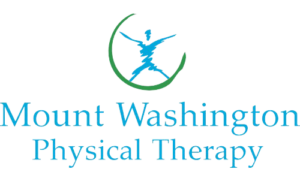The Health Risks of Loneliness and Social Isolation
By JOSHUA WIES
We live in a paradoxical time when social connectedness is made easier by technological advances. Platforms such as Facebook and Instagram allow people to keep in touch and find long lost friends; the near-ubiquity of smartphones and computers give everyone the opportunity to communicate in a range of media from email, images, video, and voice.
At the same time, however, people are reportedly feeling more socially isolated and lonely throughout their lifespans. There are apps for planning outings with friends, ride-sharing, messaging, and meeting new people, yet social isolation and loneliness are now considered serious public health issues, to the point that this year the United Kingdom government appointed a “minister for loneliness” tasked with tackling this problem.
Various studies have linked loneliness with increased risk for many health conditions including cognitive decline, high blood pressure, coronary heart disease and stroke, disability, and even mortality. According to The Telegraph, Former U.S. Surgeon General Vivek Murthy has written that loneliness and social isolation are “associated with a reduction in lifespan similar to that caused by smoking 15 cigarettes a day and even greater than that associated with obesity.” Research by University of Virginia sociologist Brad Wilcox showed a strong link between suicide and weakened social ties. Suicide in this country is reportedly on the rise and loneliness may be a cause.
Loneliness is a result of many factors and it affects all ages. In fact, Generation Z (10- to 25-year-olds) has a particularly high level of loneliness and this may be due to some interesting phenomena. For one, social and demographic trends worldwide have disrupted the traditional family structure with more geographic mobility, enabling younger people to move away from hometowns to university or for work.
A 2009 longitudinal study from Framingham, Massachusetts, demonstrated that loneliness is contagious. People in contact with a lonely person are 52 percent more likely to become lonely themselves.
This is thought to be because lonely people are less able to pick up on positive social cues, causing them to withdraw early from interactions. This in turn may make their social connections feel lonely too; an effect that has been shown to cascade through social networks.
Older people who are disabled are much more likely to become socially isolated, disconnected, and depressed. Physical and emotional barriers to engagement in normal activities of daily living and participation in the community compound isolation.
Older people are also highly likely to suffer falls, with one in three people 65 years and older falling yearly. One study last year found that those older than 40 who had a fall in the past 12 months perceived significantly higher levels of loneliness and social isolation.
In contrast, the general sense of a meaningful or purposeful life is an extremely important construct as it correlates with other measures of health and wellbeing across all ages, as well as longevity.
While there are no simple answers to these issues, loneliness, social isolation, and lack of purpose are not fixed traits but, rather, modifiable states. We know from social psychological studies that our attitudes are strongly influenced by our behaviors.
Engaging in meaningful and altruistic activities strengthens social bonds and the sense of purpose, and exposes us to the opportunity for social engagement. Being active has a further benefit of enhancing physical health, reducing the risk of adverse events such as falls.
Teaching children resilience strategies will help improve empathy and avoid some of the factors that lead to loneliness. Finding a reason to have regular interaction with a group of people — whether friends, family, or colleagues — and even fostering attachment to a place can all reduce social isolation and loneliness.
Joshua Wies is a physical therapist and Mount Washington resident who owns and operates Mount Washington Physical Therapy: www.mountwashingtonphysicaltherapy.com
410-542-6878

